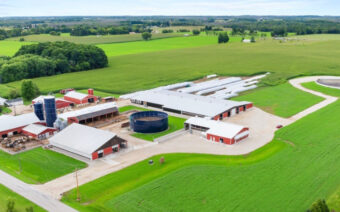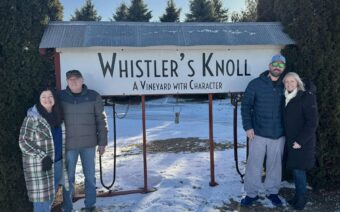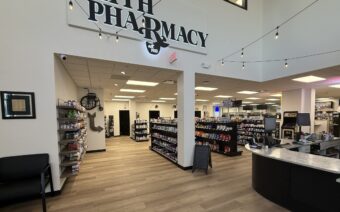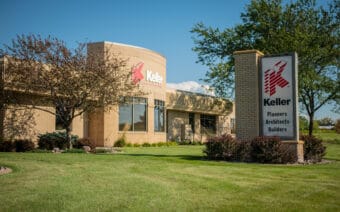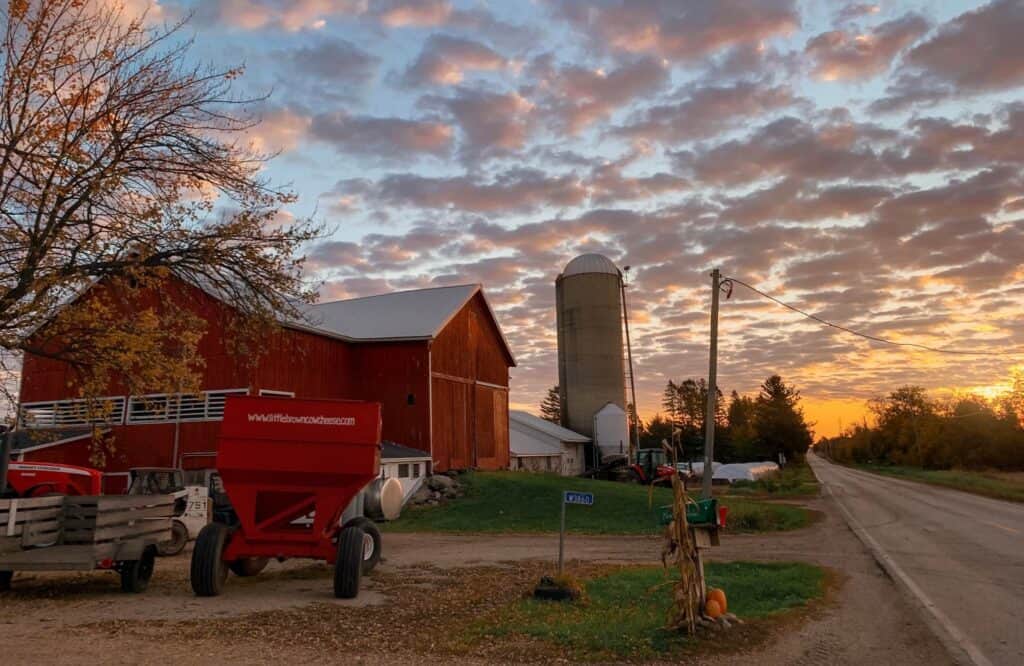
September 22, 2025
HINGHAM – Little Brown Cow Cheese, Owner and Founder Don Wilterdink said, is an all-in-the-family endeavor – both for human and Jersey cow family members alike.
Wilterdink first discovered his love for Jersey cows – per littlebrowncowcheese.com – at age 12 when his brother hired him as summer help on his dairy farm in 1974.
“I set my eyes on a little brown cow, my brother’s cow, named Daisy,” he said. “I took her to many county fairs through the years, and so the dream began.”
It was an unshakeable one, Wilterdink said, as he worked toward establishing his own dairy farm over the next decade – first renting a barn near Random Lake where he kept his initial cows (Gertrude, Chuck, Lynn and Bessy) as well as the 17 additional Jersey cows he purchased with a loan shortly after.
A year later, Wilterdink said he married his high school sweetheart, Lynn, and the two bought 10 more cows before finally moving their herd to a property they purchased east of Hingham in 1989 – naming the farmstead Long Distance Genetics.
Over the years, Wilterdink said the farm and his family grew, with him and Lynn raising their eight children there, as well as their now 60 milking cows – the same number the farm has milked since 1997 – who have made Little Brown Cow Cheese a reality.
“My dad always had an interest in cheese, but [with] having eight kids all in sports and 4-H, our plates were packed,” Tessa Weber, marketing manager for Little Brown Cow Cheese and Wilterdink’s daughter, said. “It wasn’t until after a lot of us left home that he had the time to make the first batch of cheese in 2017 or 2018, taking a ‘let’s try this and see what happens’ [approach].”
Fortunately, Weber said Wilterdink had access to an amazing resource in Phil Tatenhove with nearby Gibbsville Cheese Company Inc. in Sheboygan Falls.
The Wilterdink family farm’s milk, she said, was already being transported there, and Wilterdink had become friends with Tatenhove.
So, when Wilterdink expressed interest in making cheese, Weber said Tatenhove offered the opportunity to rent his cheese-making equipment and production facility.
“Phil [offered] my dad the use of his equipment and even offered his people to make my dad’s cheese recipe,” she said. “To this day, we still have a special pickup of our milk that [is taken there to make our cheese]. They’ve been awesome to work with, even cutting our cheese for us. We have quite the awesome partnership.”
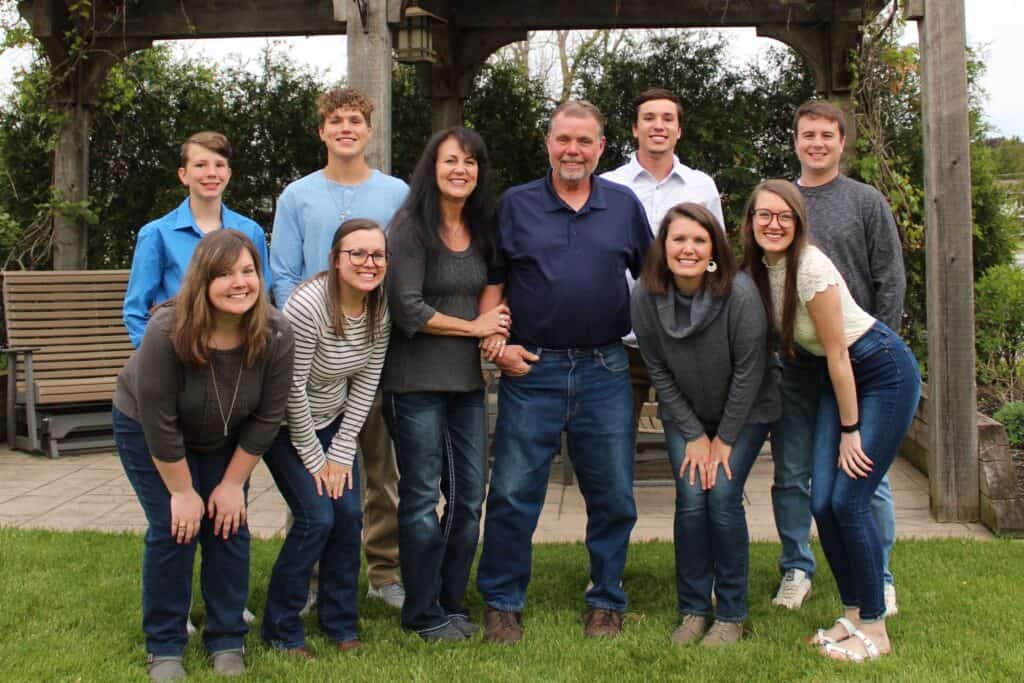
Sampling leads to sales
In the business’s early days, Weber said the COVID-19 pandemic caused a blip in Little Brown Cow’s progress.
“That really slowed us down,” she said. “But by 2021, when we were able to do [cheese] samplings, it exploded in stores. I always say, the cheese sells itself. If you try the cheese, you will love it.”
The cheddar cheese made at the Gibbsville facility, Weber said, uses a mix of their Jersey cows’ milk and other farms’ milk, and is then cut and packaged before arriving on the Wilterdink farm to be labeled with her design.
Each package of cheese, she said, features a picture of her little brother standing with his fair cow as a kid.
“It is one of my dad’s favorite pictures ever taken on the farm, and the second he got into cheese, he knew which picture to use [for the label],” she said.
Little Brown Cow’s distribution network, she said, has expanded as she and her father have taken different approaches to market their product.
“My dad just shows up at stores and says, ‘Who is in charge of cheese?’ – whereas I work a lot with organizations like the Dairy Farmers of Wisconsin,” she said. “They’ve been awesome in going to trade shows and helping me connect with a few places.”
Many of their retail partners are within a nearby radius – however, Weber said the cheese has found its way into more distant locations, including the Willy Street Co-op – a natural foods cooperative with several locations in Madison – DreamPort Harvest Market in Port Washington, and Lautenbach’s Orchard Country Winery & Market in Fish Creek.
“There was a day that my dad, my [two brothers] and I drove to Madison in a van and did a whole day of sampling, and we were just giddy, saying, ‘We make cheese,’” she said. “[Willy Street Co-op] has been one of the most successful [partnerships] for us.”
Weber said they also offer shipping seasonally and have teamed up with someone who can transport the cheese to outlying locations using a refrigerated truck.
Store sampling, Weber said, continues to be an integral part of the business model.
“You’d be surprised how many people try our cheese and then later reach out,” she said. “Sampling is awesome – not just to get people to buy it [in store] but also later.”
Quality cows = quality cheese
Weber said Little Brown Cow Cheese offers a variety of cheddars, including some much-anticipated three- and five-year cheeses that have been aging since the COVID-19 pandemic.
After the pandemic, she said sales of the cheese took off fast, and the family’s inventory diminished.
As a result, Weber said her dad keeps a secret stash of their most-aged cheddar.
“There are only 11 pounds of the first batch we ever made, and it’s really special – an elite cheese,” she said.
However, she said all Little Brown Cow Cheese sits for a minimum of three months after it’s made – some longer – and is produced in 40-pound bricks that sit and age before being cut.
The cheese is not only delicious, Weber said, but also efficient, as using Jersey cows’ milk can make 20-25% more cheese per gallon of milk versus Holstein milk.
“We can produce more cheese with fewer cows and make a lower carbon footprint,” she said.
Though many cheeses can become crumbly as they age, Weber said Jersey milk’s high butterfat and overall fat content naturally make for a creamier cheese.
Because of that, she said her father has focused on the cows since 1987 – pursuing higher-quality milk production by breeding higher-quality cows and feeding them with superior nutrition.
“My dad has developed a recipe for how the cows eat, and happy cows make happy cheese,” she said. “It’s not about having more cows, but the best cows.”
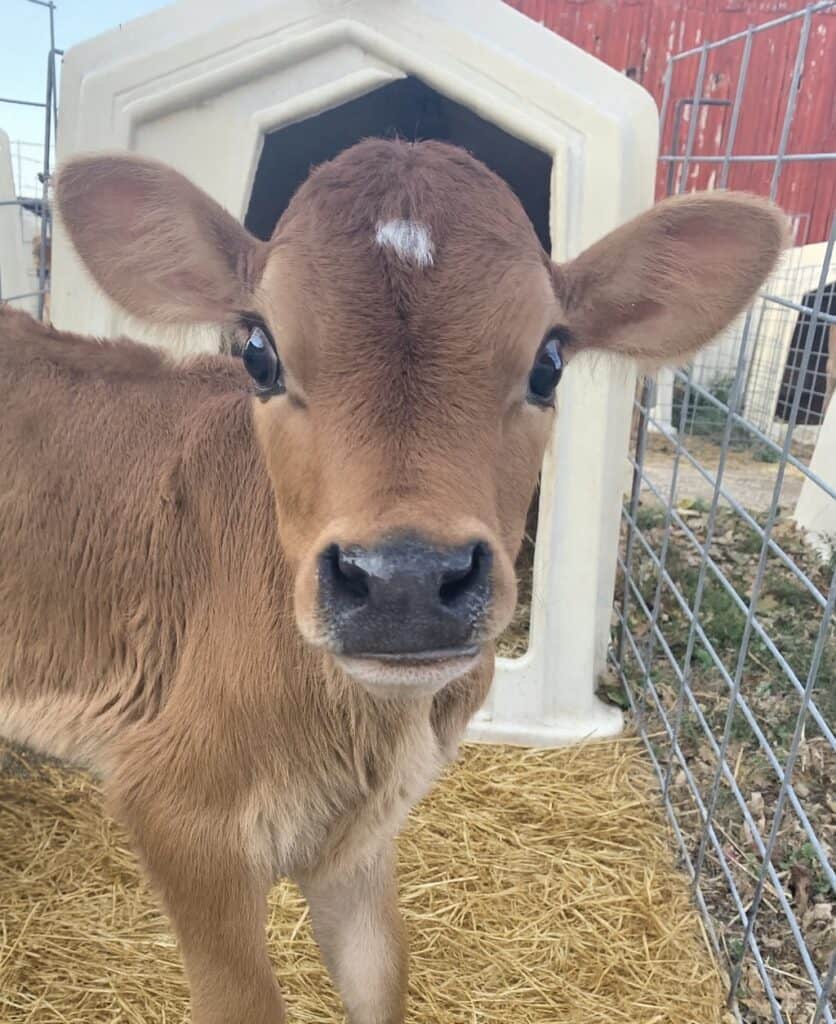
A father-daughter endeavor
Outside of family “labeling parties” and the occasional outside cheese delivery, Weber said she and her dad are the two people most involved in the day-to-day operations of Little Brown Cow Cheese.
She said they “tag-team” the work – with Wilterdink handling the frontline farm aspect of the business and her managing the business’s back end.
The rest of the family, Weber said, is on standby as needed.
For example, last April, she said Wilterdink was injured and unable to work on the farm, but her siblings showed up when and where they were needed to keep things running as he healed.
“Everybody put on boots and got in the barn,” she said. “The second [that help] is needed, or Dad sends a message about a huge hay-push or need to unload the hay, they show up.”
Weber said the whole family’s involvement and contributions are fundamental to Little Brown Cow Cheese’s success, and help grow the business further as more customers fall in love with the product, as well as the family’s story.
“[We’re] a small-town, classic Wisconsin, big farm family that runs the farm together and does the cheese together,” she said. “That’s not as common anymore with a lot of factory farms and not as many small farms.”
The delicious, creamy and flavorful cheese itself, Weber said, “keeps people coming back.”
Building a legacy
Weber said her dad had no idea his dream of creating a Jersey milk-based cheddar cheese would materialize – adding that he often uses the word “legacy” when talking about Little Brown Cow Cheese.
“He considers it a legacy to be able to make cheese, [even if] only for family and friends,” she said. “We didn’t picture it getting this big.”
Operations had to slow a bit this past year, Weber said, when her recent pregnancy came with many challenging symptoms that forced her to “hit the brakes.”
Now, she said all is well, and because her 10-month-old daughter is flourishing, Weber is able to get increasingly involved in the business operations again – helping identify opportunities to grow distribution and even dabbling in other flavors, though her dad is solely focused on cheddar.
“My long-term goal is to take over the cheese business down the line, as cheese is my legacy,” she said. “I told my dad, ‘I want to carry on your legacy and be as involved as possible so one day, when you’re not here, you’re still here.’”
Wilterdink said he considers raising eight wonderful children on the farm as a huge aspect of his legacy, as well as the one constant in his life and on his farm for 30-plus years.
“It’s those little brown cows,” he said. “Sometimes, I look at them as partners, other times, employees, but really, they are just part of the family.”
 Mini golf meets arcade fun at new establishment in Appleton
Mini golf meets arcade fun at new establishment in Appleton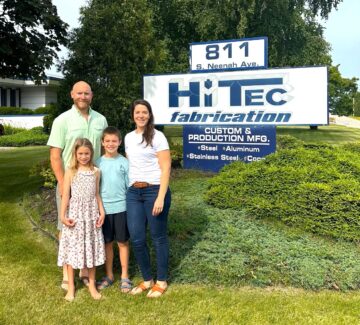 Hi Tec Fabrication – welding dreams, seam by seam
Hi Tec Fabrication – welding dreams, seam by seam


